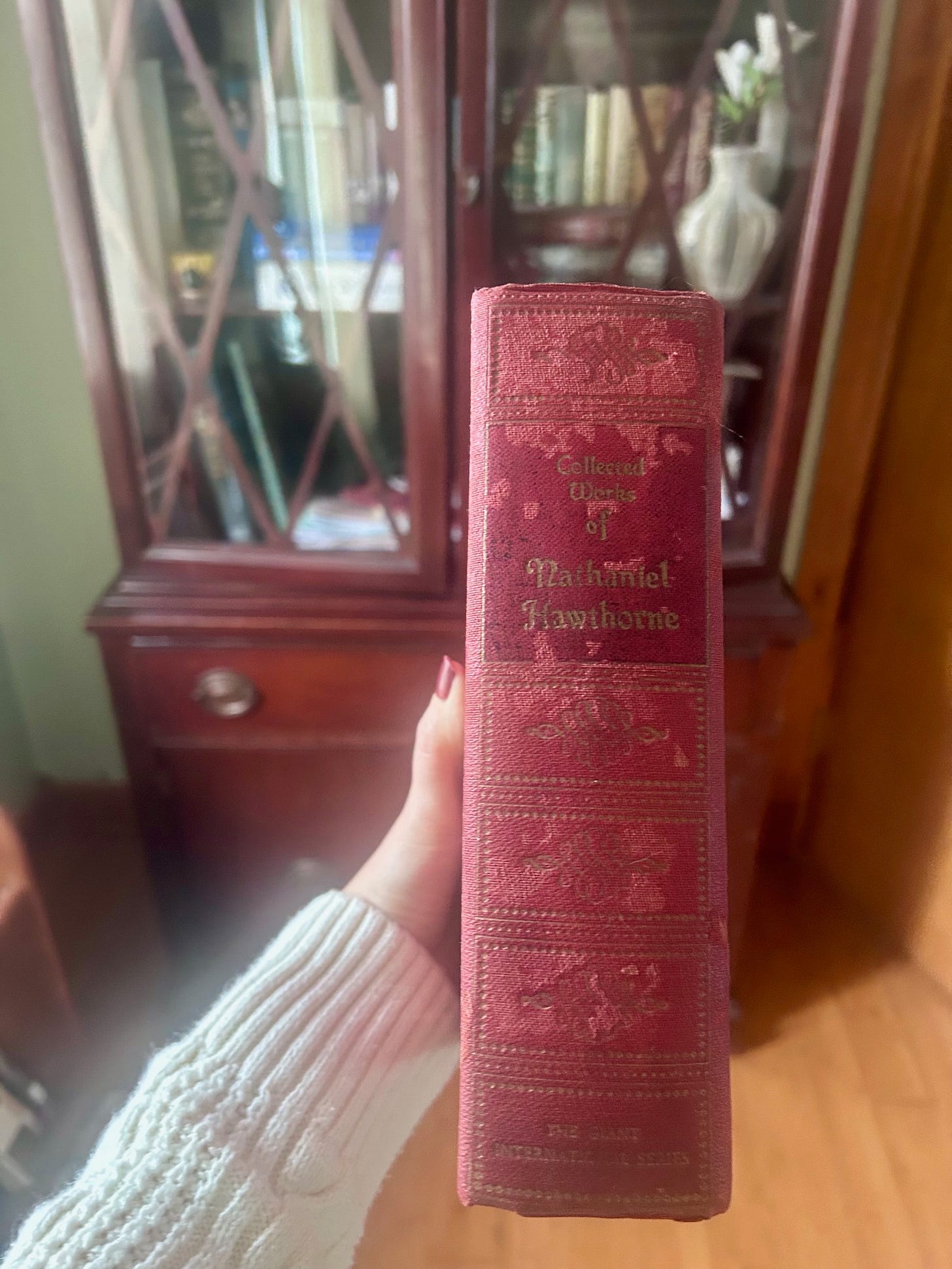February 2025 read-along pick: The Scarlet Letter by Nathaniel Hawthorne
Because I plan to explore Concord, Massachusetts
Do you ever feel as if there’s a book—or actually about 100 books—you should have already read in your lifetime but realize you actually haven’t?
Just because one attends a four-year university (or takes additional English courses for fun), a well-rounded exposure to literature is not guaranteed. Perhaps it was, once upon a time, but I can’t tell you how disappointed I’ve been with how little I was required to read in both high school and college. My required academic reading included very little beyond various short stories, Beowulf, Thornton Wilder’s Our Town, Shakespeare’s Hamlet, Dickens’ Hard Times and portions of Jane Austen novels.
This is not an exaggeration and there’s a fascinating (albeit depressing) piece on this very problem that was published in The Atlantic last fall.
Consequently, it’s this very predicament that’s shaping my reading list today: I’m nearing my mid-thirties and (happily) reading classic children’s literature simply because I feel like I’ve missed out and I need to start somewhere. I’m taking note on what works are timeless, actually reading them from start to finish, and seriously considering what they say about the human experience as a whole.
And I’m picking up books I likely should have read in high school but didn’t. Enter: The Scarlet Letter.
I will confess that my motivation for reading Nathaniel Hawthorne’s most famous work this month is two-fold, however, as I also plan to take a trip to Concord, Massachusetts later this year; I simply can’t (in good conscience anyway) explore the grounds the American literature pioneers walked without having read, at the very least, their most famous works.
Admittedly, the plot of this widely-known novel does not initially and particularly excite me, but I am interested to see how Hawthorne explores the themes of guilt, sin, and legalism. Having already read Leo Tolstoy’s Anna Karenina, I have some idea of the heaviness and despair that awaits a love-affair centered storyline.
I also plan to read some of Hawthorne’s short stories this month, (as I have only read a handful of them), and depending on how ambitious I get—or rather, how well my two small children play together in the coming weeks—I may attempt to read The House of Seven Gables as well. (Do not count on this; I’m also starting a popular fantasy series and reading some modern mysteries/psychological thrillers.)
If you have read The Scarlett Letter, please share your overall impressions with me! Goodreads reviews hover in the 3-star range, so it’s difficult for me to gauge exactly what I’m in for. I do, however, think that the dead of winter is a seasonally appropriate time to dive into Hawthorne’s works—and I tend to embrace the heavier and more complicated novels this time of year.
If you have not read this novel and, like me, feel as if you should have already, consider joining me in my efforts to revisit quintessential required high school reading; perhaps we will learn something together.





I studied The Scarlet Letter in both high school and college. I also read The House of the Seven Gables (I think twice—for two different courses) in college. I enjoyed both, though I think I enjoyed The Scarlet Letter more. But I remember absolutely loving Hawthorne’s short stories in college! I’ve been eyeing his short story collection on my bookshelf for a re-read lately.